Medicine For Heavy Menstrual Bleeding
- Total Items (0)
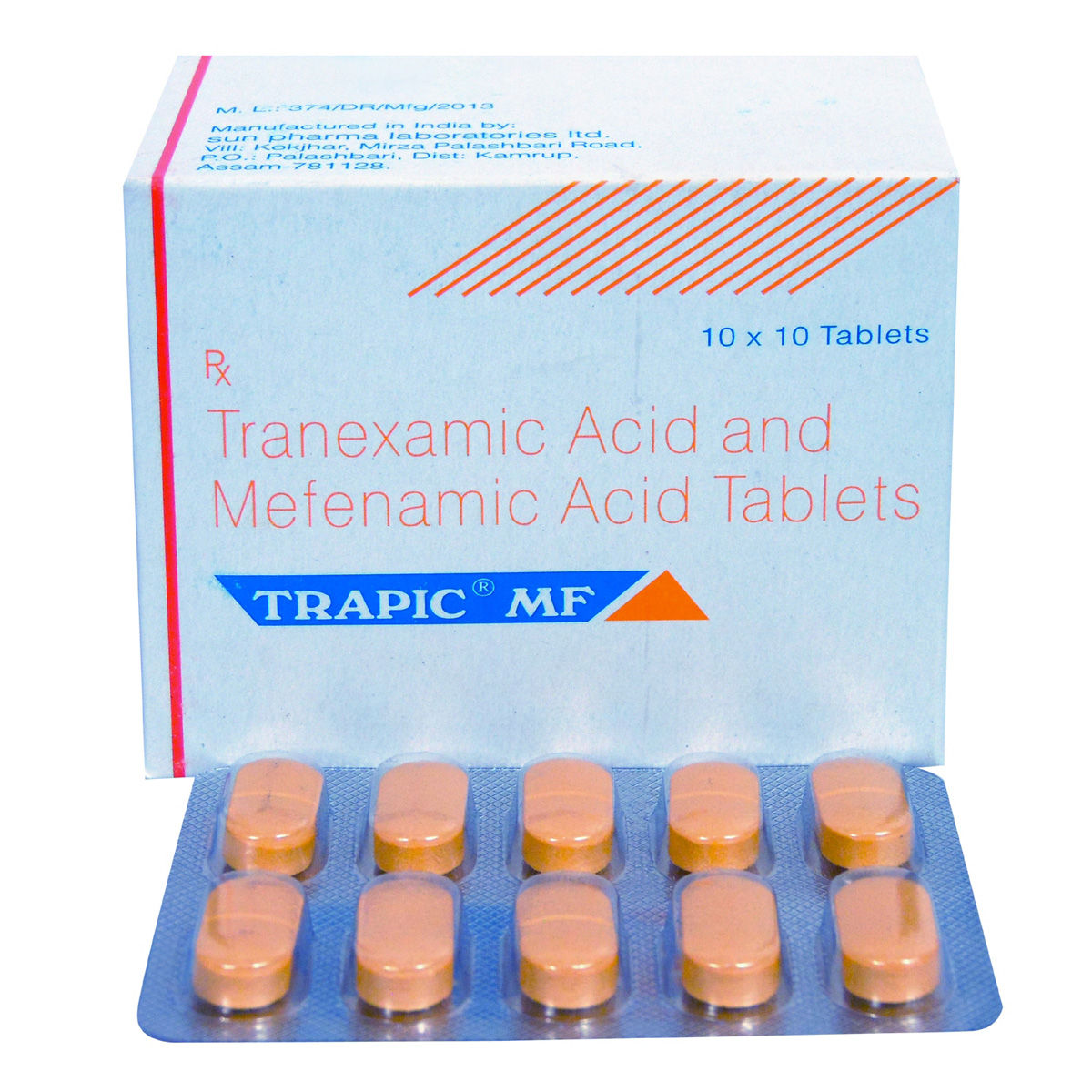 RX
RXTrapic MF Tablet 10's
₹436.50
MRP ₹485
10% off
 RX
RXPause-500 Tablet 10's
₹175.10
MRP ₹194.50
10% off
 RX
RXPause-MF Tablet 10's
₹456.80
MRP ₹507.50
10% off
 RX
RXMelano-TX OD Tablet 15's
₹260.60
MRP ₹289.50
10% off
 RX
RXTrapic Tablet 10's
₹175.10
MRP ₹194.50
10% off
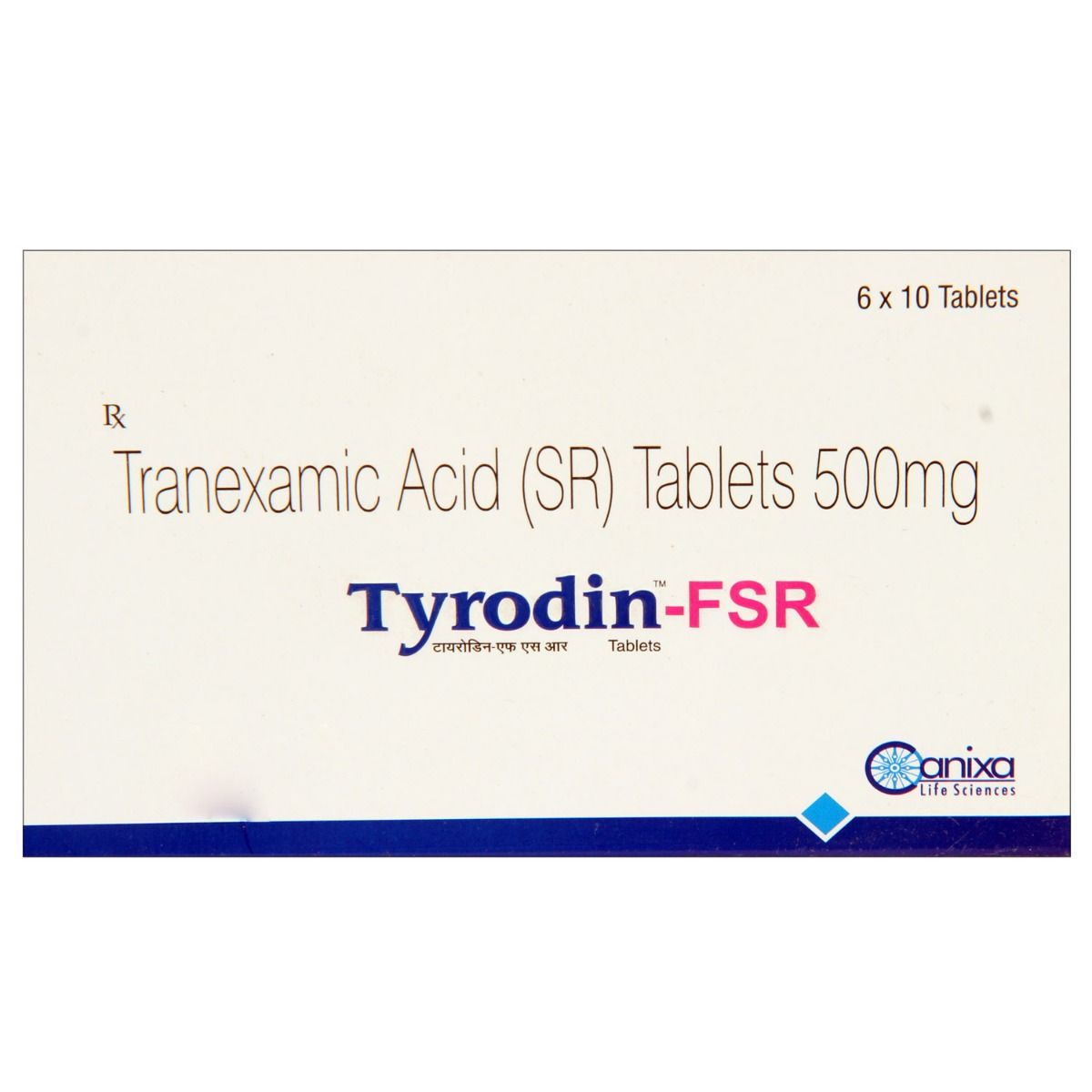 RX
RXTyrodin-FSR Tablet 10's
₹166.50
MRP ₹185
10% off
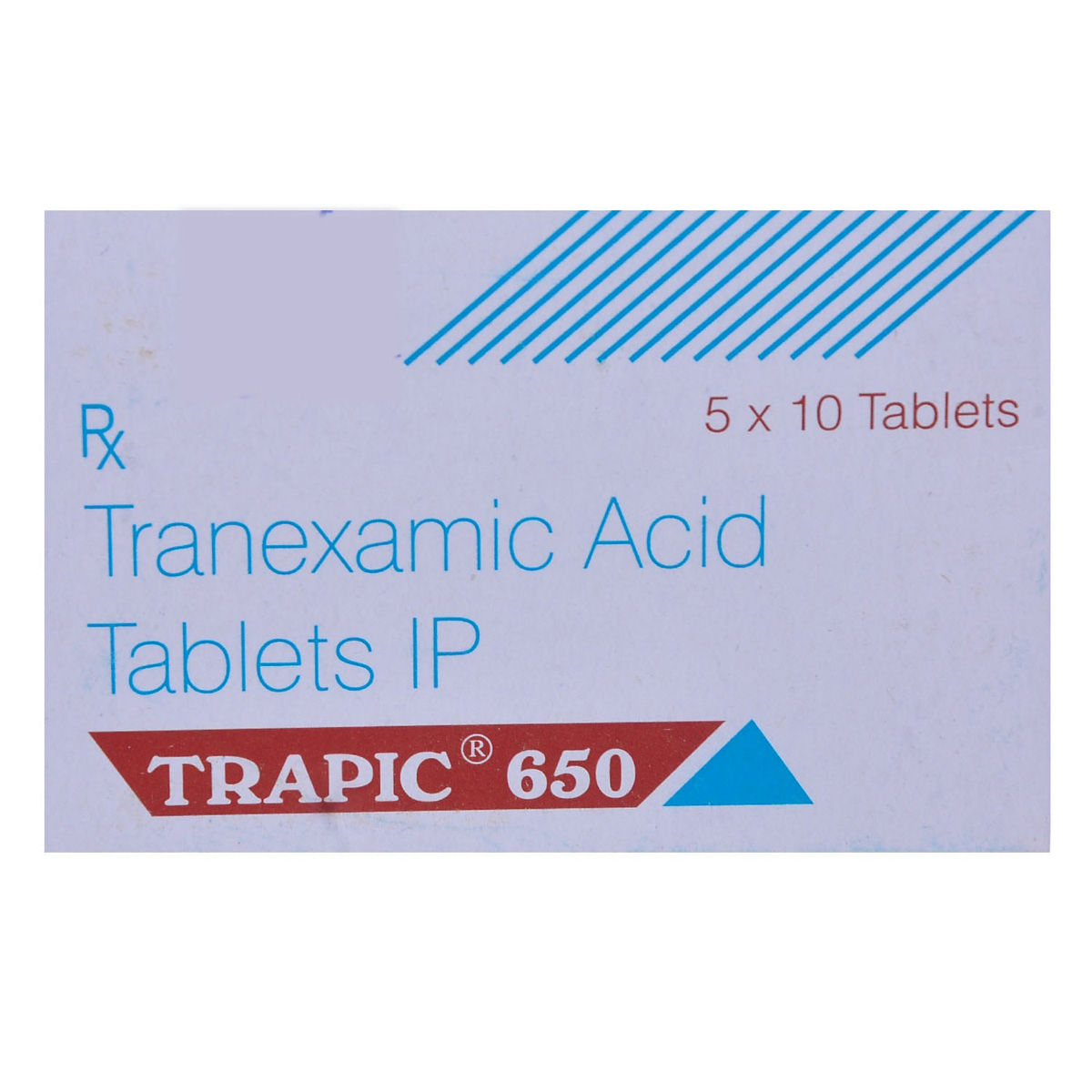 RX
RXTrapic 650 Tablet 10's
₹359.10
MRP ₹399
10% off
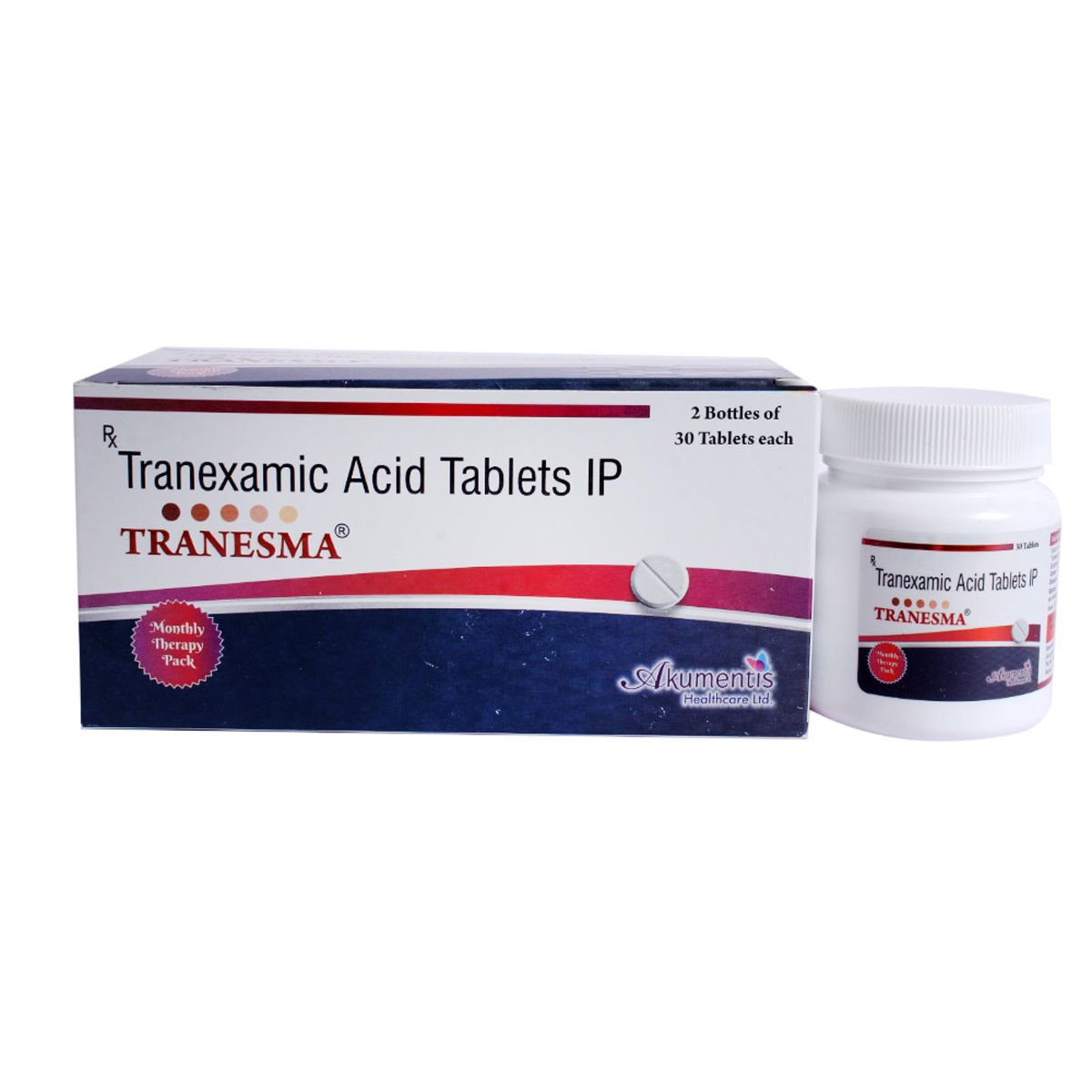 RX
RXTranesma 250 Tablet 30's
₹513
MRP ₹570
10% off
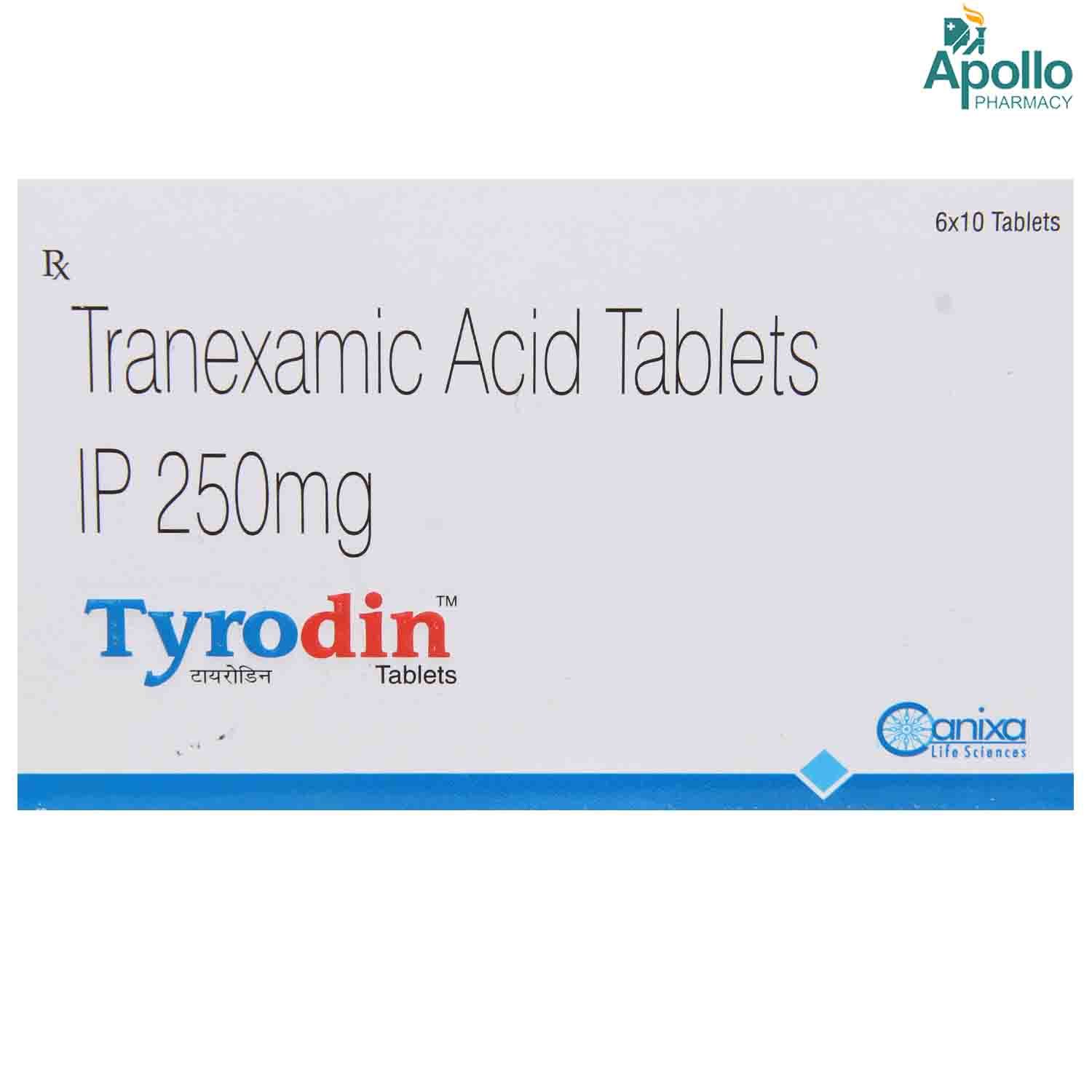 RX
RXTyrodin Tablet 10's
₹117
MRP ₹130
10% off
 RX
RXTexakind-MF Tablet 10's
₹287.10
MRP ₹319
10% off
 RX
RXKenadion 10 mg Tablet 10's
₹143
MRP ₹162.50
12% off
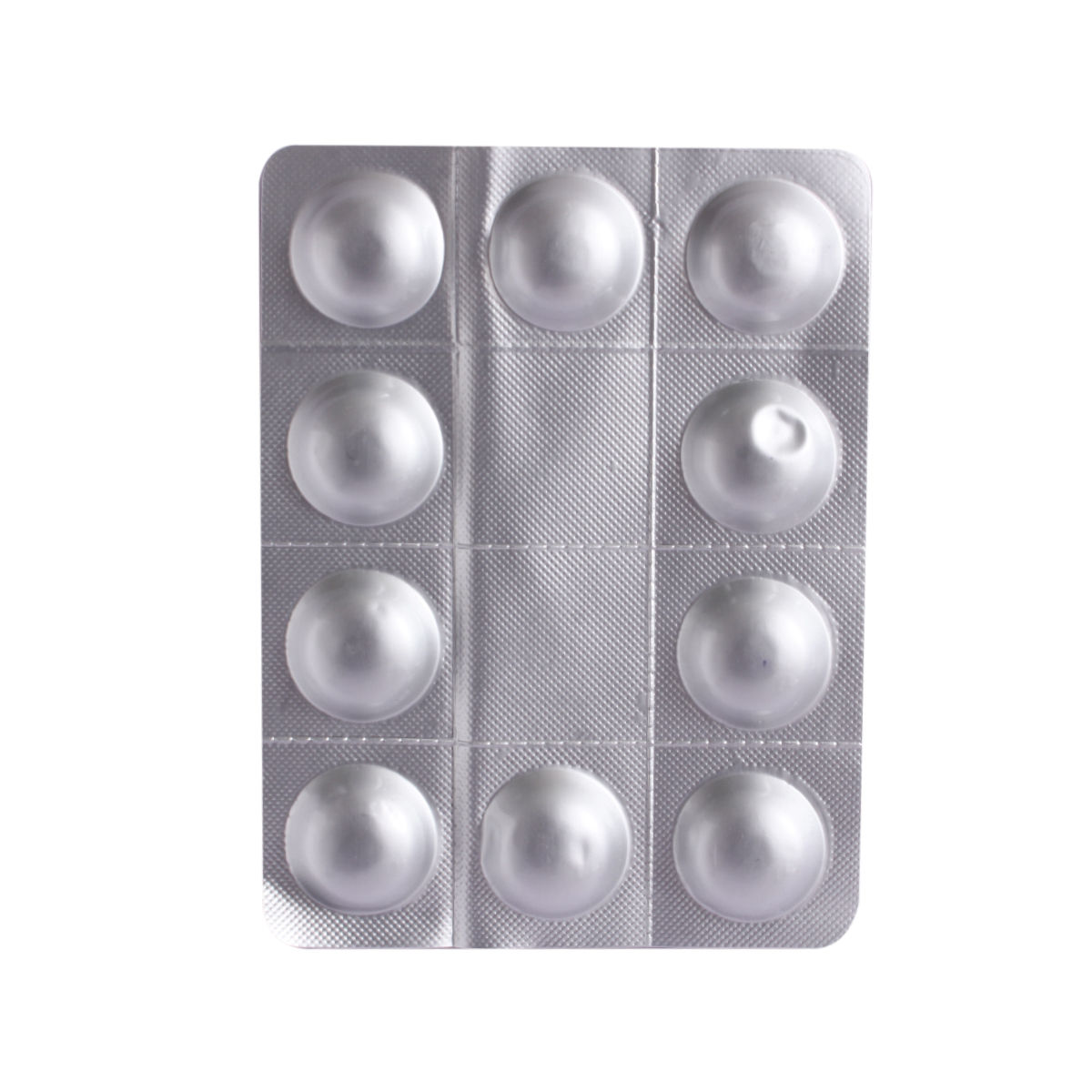 RX
RXMelano-TX 250 Tablet 10's
₹151.20
MRP ₹168
10% off
 RX
RXPinodin TX-SR Tablet 10's
₹166.50
MRP ₹185
10% off
 RX
RXNexna Tx Tablet 10's
₹137.70
MRP ₹153
10% off
 RX
RXTexakind Tablet 10's
₹140.40
MRP ₹156
10% off
 RX
RXTenacid-MF Tablet 10's
₹110
MRP ₹200
45% off
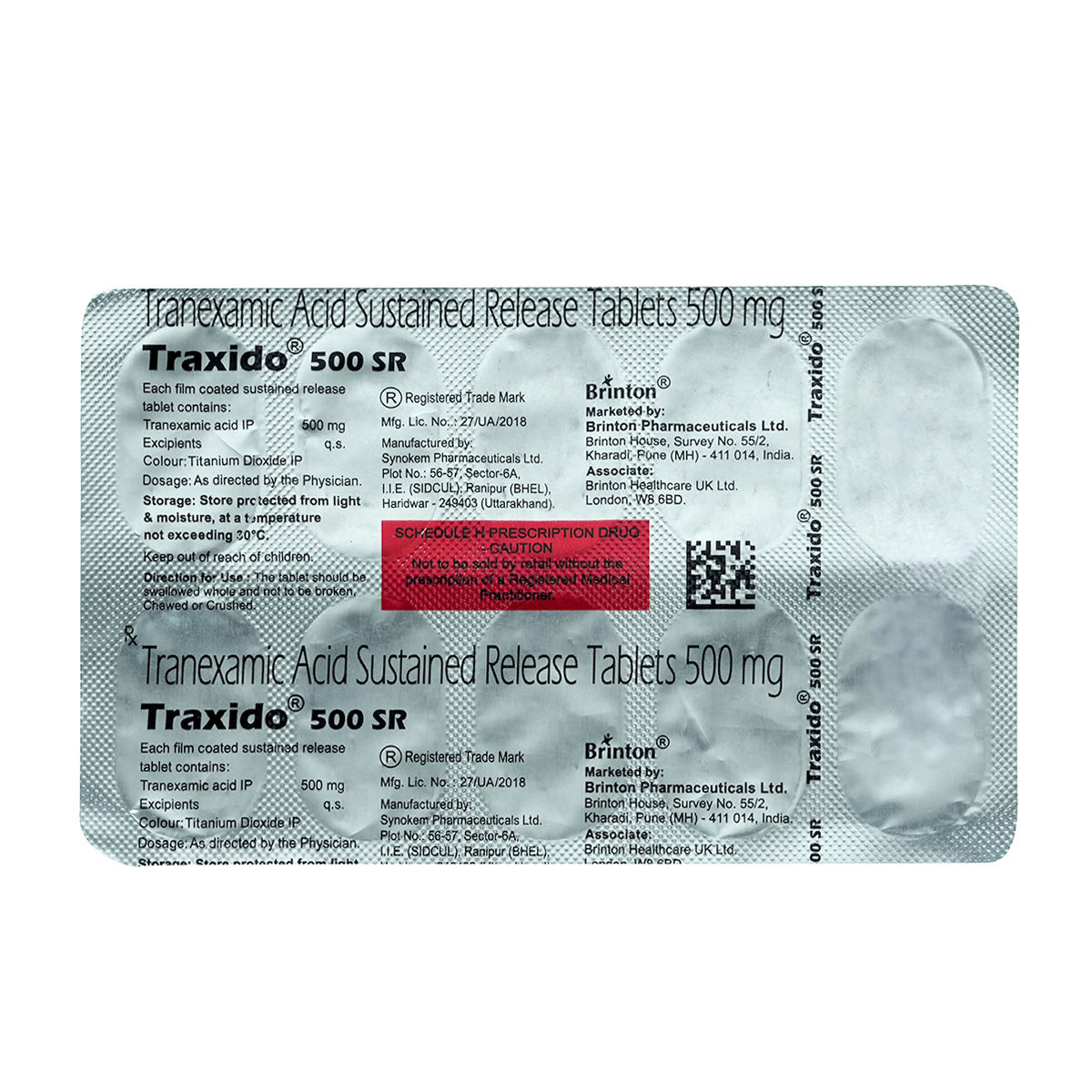 RX
RXTraxido 500mg Sr Tablet 10's
₹175.10
MRP ₹194.50
10% off
 RX
RXEtosys-MF Tablet 10's
₹220.50
MRP ₹245
10% off
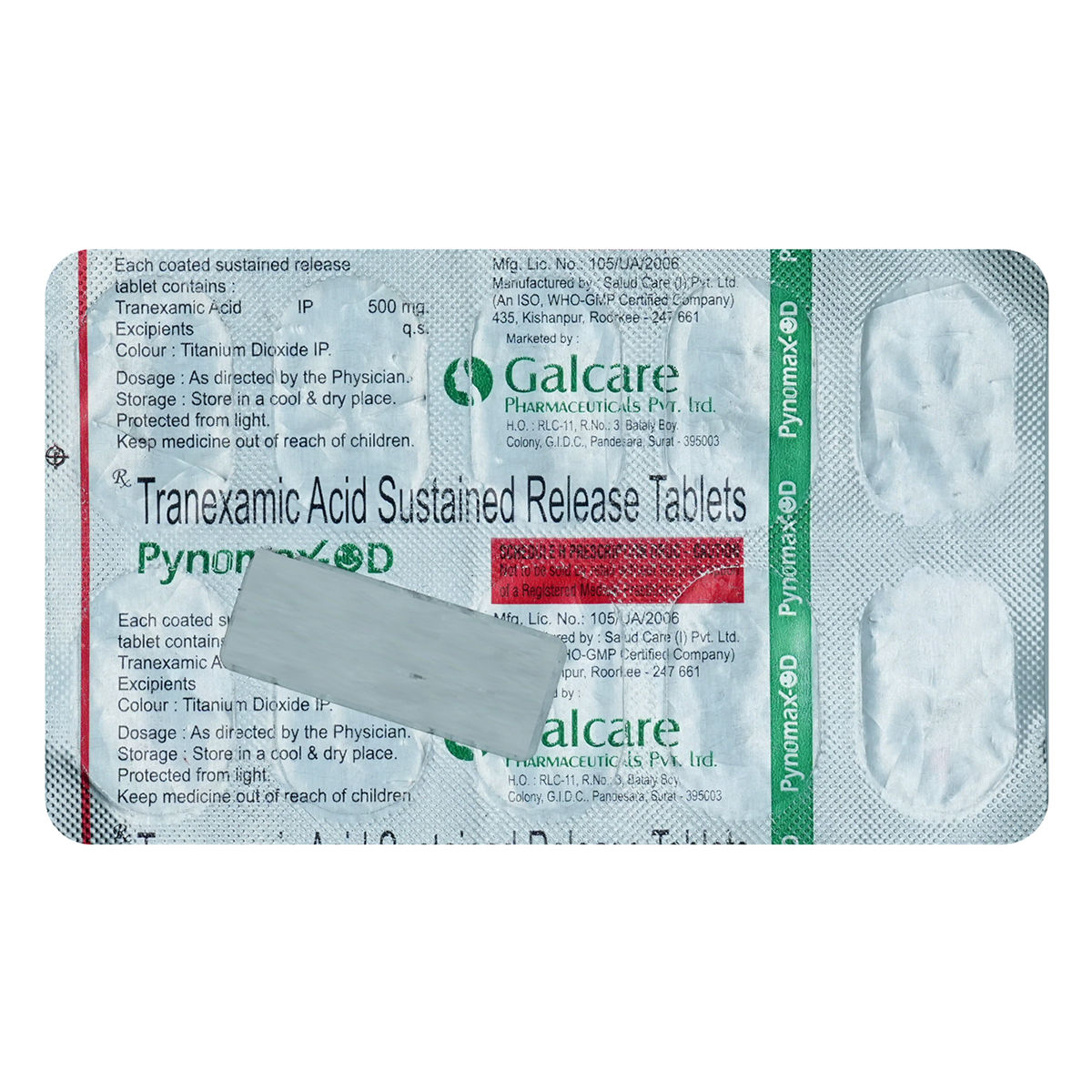 RX
RXPynomax-Od Tablet 10's
₹225
MRP ₹250
10% off
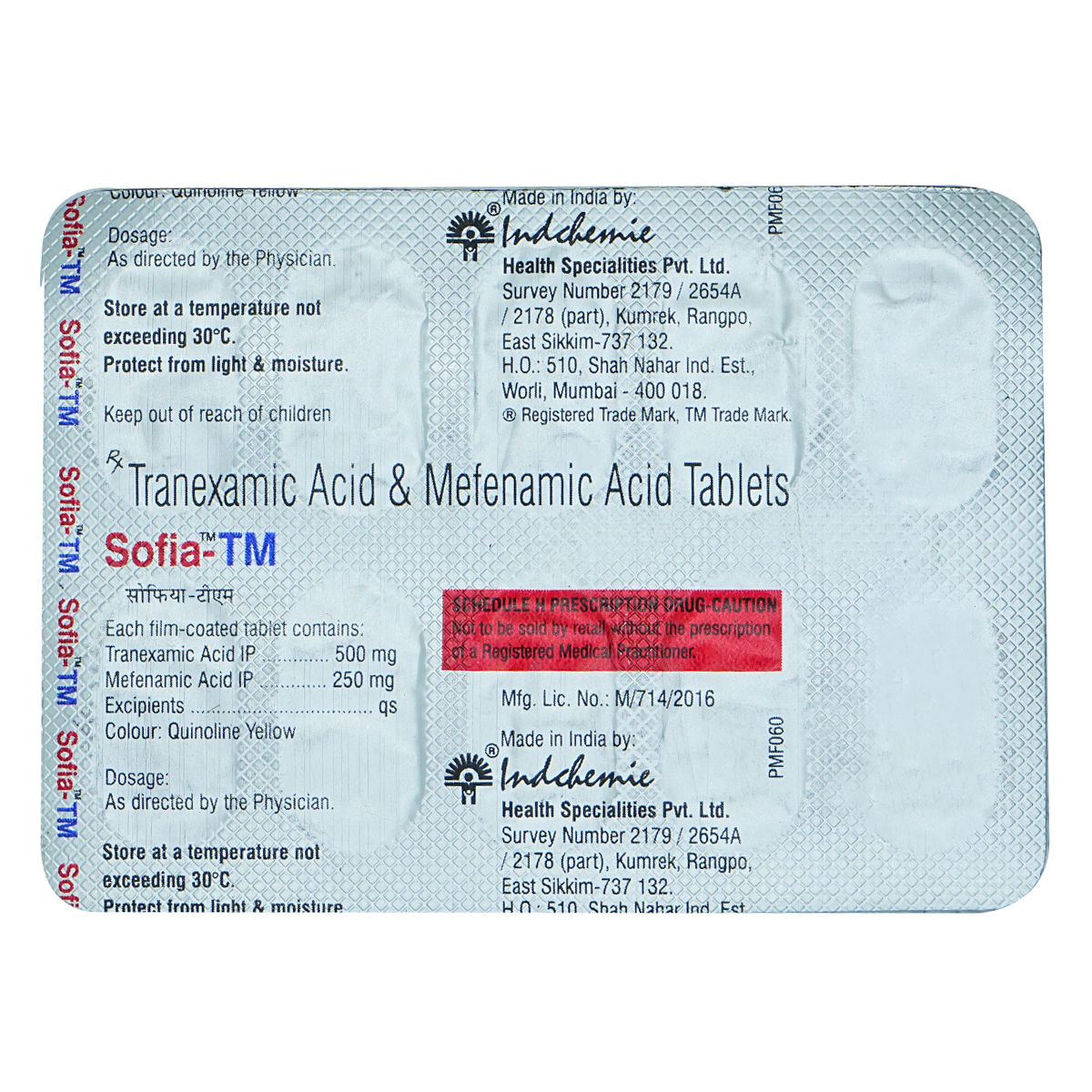 RX
RXSofia-TM Tablet 10's
₹414
MRP ₹460
10% off
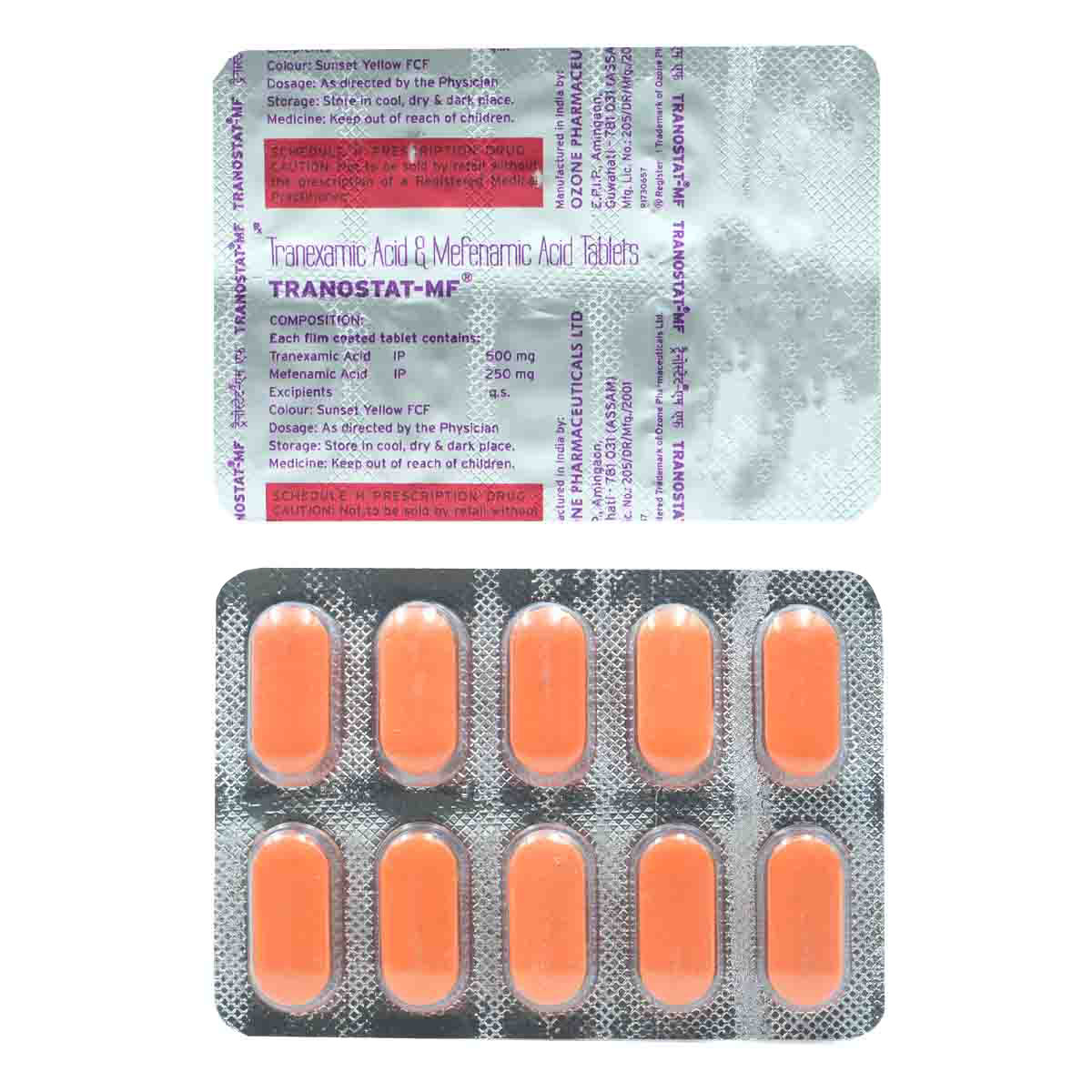 RX
RXTranostat MF Tablet 10's
₹341.60
MRP ₹379.50
10% off
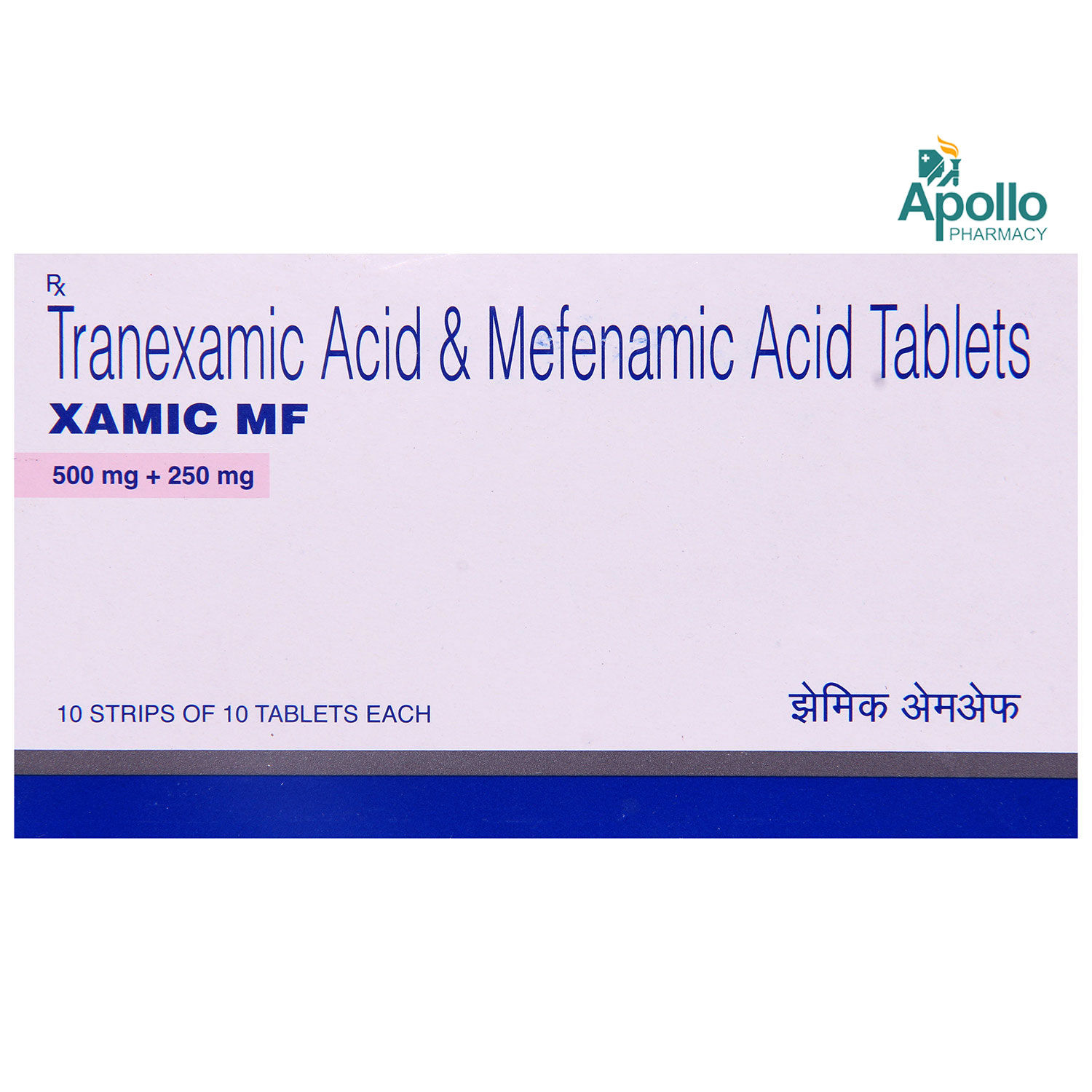 RX
RXXamic MF Tablet 10's
₹347.20
MRP ₹394.50
12% off
 RX
RXPynomax TX Tablet 10's
₹125.10
MRP ₹139
10% off
Medicine For Heavy Menstrual Bleeding
Heavy menstrual bleeding, also known as menorrhagia, is a common condition that affects many women of reproductive age. It is characterised by excessive blood loss during menstruation, which can interfere with daily activities and lead to anaemia. Various factors can contribute to heavy menstrual bleeding, including hormonal imbalances, uterine fibroids, polyps, and certain medical conditions.
Types of Medicine for Heavy Menstrual Bleeding
Heavy menstrual bleeding, or menorrhagia, can be managed and treated with various types of medications. These medications aim to reduce blood flow, alleviate associated symptoms, and address underlying causes. Here are the primary types of medicine for heavy menstrual bleeding:
- Nonsteroidal Anti-Inflammatory Drugs (NSAIDs): Medications like ibuprofen and naproxen work by reducing the production of prostaglandins—chemicals involved in inflammation and excessive bleeding. By lowering prostaglandin levels, NSAIDs effectively decrease both the amount of menstrual blood loss and the pain associated with menstruation. They are also highly effective in relieving menstrual cramps.
- Tranexamic Acid: This antifibrinolytic medication helps control heavy bleeding by preventing the breakdown of fibrin, the protein essential for blood clot formation. Tranexamic acid is typically taken during the heaviest days of menstruation to reduce excessive blood loss and promote clotting.
- Oral Contraceptives (Combined Hormonal Pills): These pills contain estrogen and progestin, which regulate menstrual cycles and stabilise the uterine lining. By promoting controlled growth and shedding of the uterine lining, they reduce heavy bleeding.
- Oral Progesterone: Progesterone-only medications, such as medroxyprogesterone and micronised progesterone, stabilise the uterine lining and reduce heavy bleeding. They are often recommended for women who cannot take estrogen-based treatments, such as those with a history of blood clots.
- Hormonal Intrauterine Devices (IUDs): Levonorgestrel-releasing IUDs release progestin directly into the uterus, which reduces the thickness of the uterine lining over time. This leads to a significant reduction in menstrual bleeding. Hormonal IUDs offer a long-term solution for managing heavy menstrual bleeding and also serve as a highly effective form of birth control.
- Gonadotropin-Releasing Hormone (GnRH) Agonists: These medications suppress the production of ovarian hormones, resulting in a thinner uterine lining and reduced bleeding. GnRH agonists are generally used for short-term management due to potential side effects, such as menopausal-like symptoms (e.g., hot flashes, and reduced bone density).
- Danazol: A synthetic hormone, danazol reduces menstrual bleeding by suppressing estrogen levels. However, its use is limited due to side effects like weight gain, acne, and voice deepening, making it a secondary option when other treatments are ineffective.
- Iron Supplements: While not directly reducing blood flow, iron supplements are often prescribed to treat or prevent anaemia caused by chronic blood loss. These supplements help restore iron levels, combating fatigue and weakness associated with low haemoglobin levels.
Benefits of Using Medicine for Heavy Menstrual Bleeding
Medications for heavy menstrual bleeding (menorrhagia) provide a range of benefits that can significantly enhance women's health and well-being. Here's how they help:
- Reduction in Blood Loss: Medicines like pain relievers (NSAIDs), tranexamic acid, and birth control pills are great at reducing heavy menstrual bleeding. By controlling the heavy bleeding, these treatments help prevent complications like iron deficiency anaemia, which happens when you lose too much blood over time. Reducing blood loss not only boosts your overall health but also lowers the need for severe treatments like blood transfusions.
- Relief from Menstrual Pain: NSAIDs, such as ibuprofen, alleviate both bleeding and the discomfort caused by menstrual cramps. By inhibiting prostaglandins—the chemicals responsible for painful uterine contractions—these medications make periods more manageable, allowing women to carry on with daily activities without disruption.
- Regulation of the Menstrual Cycle: Hormonal treatments, like birth control pills and progesterone, help regularise your menstrual cycle, making your periods more predictable and easier to handle. These treatments are especially helpful for women who have irregular periods or hormone imbalances.
- Improved Quality of Life: Managing heavy bleeding effectively leads to better physical and emotional well-being. By reducing both excessive blood loss and pain, women can engage in daily routines, social events, and work without the constant stress or discomfort associated with heavy periods. This contributes to better mental health, greater productivity, and overall stability.
- Preventing Health Problems: If heavy menstrual bleeding is left untreated, it can lead to health problems like anaemia, tiredness, and dizziness, and even affect your ability to get pregnant. Using the right medications can control the bleeding and help prevent these issues.
- Better Fertility Control: For women thinking about family planning, some medications like birth control pills and hormone treatments can help with both heavy bleeding and fertility. These treatments make it easier to manage periods while giving you more control over when you want to become pregnant.
Dosage & Usage Instructions of Medicine for Heavy Menstrual Bleeding
When using medicine for heavy menstrual bleeding (menorrhagia), it’s essential to follow the prescribed dosage and consult a healthcare provider for personalised recommendations. Here’s a brief guide to the general dosage and usage of common medicines:
1. Nonsteroidal Anti-Inflammatory Drugs (NSAIDs)
- Dosage: Typically, take 200-400 mg every 4-6 hours as needed. Do not exceed the daily limit (usually 1200 mg per day).
- Instructions: Take with food to prevent stomach irritation. Use during the days of heavy bleeding to reduce bleeding and ease pain.
2. Tranexamic Acid
- Dosage: Take 1300 mg three times a day, but only on days of heavy bleeding.
- Instructions: Use this medication only when experiencing heavy bleeding, and do not exceed the prescribed dose.
3. Oral Contraceptives (Combined Pills)
- Dosage: Take one pill daily at the same time every day.
- Instructions: Follow your doctor’s instructions on when to start the pill. Take continuously to help regulate menstrual cycles and reduce bleeding.
4. Oral Progesterone
- Dosage: Typically 5-10 mg daily, taken for 10-14 days, depending on your doctor’s prescription.
- Instructions: Start taking the medication in the second half of the menstrual cycle to help stabilise the uterine lining and reduce bleeding.
5. Hormonal Intrauterine Device (IUD)
- Dosage: One IUD insertion provides continuous hormone release for 3-5 years.
- Instructions: The device must be inserted by a healthcare provider. Over time, it will help reduce bleeding by thinning the uterine lining.
6. GnRH Agonists
- Dosage: Administered as a monthly or 3-monthly injection.
- Instructions: This medication suppresses ovarian hormone production to control heavy bleeding. It is typically used for short-term treatment.
7. Danazol
- Dosage: Typically 100-200 mg twice daily.
- Instructions: Used for short periods to reduce bleeding by suppressing estrogen. Follow your doctor’s advice closely to manage side effects.
8. Iron Supplements
- Dosage: Typically 1-2 tablets daily, depending on your iron levels.
- Instructions: Take on an empty stomach for better absorption. If you experience stomach discomfort, you can take it with food.
Key Notes:
- Always follow the dosage instructions on the packaging or as advised by your healthcare provider.
- Some treatments may require time to show their full effects, so patience is essential in managing heavy menstrual bleeding.
Where To Order Medicine For Heavy Menstrual Bleeding Online?
You can easily order medications for heavy menstrual bleeding from Apollo 24|7 through their website or mobile app. Apollo 24|7 offers a variety of treatments, including NSAIDs like ibuprofen, tranexamic acid, and oral contraceptives, to help manage heavy menstrual bleeding. These medications are available from trusted brands and can be conveniently delivered right to your doorstep. For treatments like hormonal IUDs or progesterone therapy, you can book a doctor's appointment through the app for personalised advice and prescriptions. Additionally, lab tests are available for a comprehensive health assessment. With the ability to book doctor appointments and lab tests directly through the app, you get complete healthcare solutions in one place.
Frequently asked questions
Heavy menstrual bleeding, or menorrhagia, is excessive blood loss during menstruation that can interfere with daily activities and lead to anaemia.
Heavy menstrual bleeding can be caused by hormonal imbalances, uterine fibroids, polyps, certain medical conditions, and other factors.
Heavy menstrual bleeding is diagnosed through a combination of medical history, physical examination, and diagnostic tests such as blood tests, ultrasound, and hysteroscopy.
Yes, heavy menstrual bleeding can affect fertility by disrupting the menstrual cycle and ovulation. Treating the underlying cause can improve fertility.
Yes, lifestyle changes such as maintaining a healthy weight, managing stress, and avoiding excessive exercise can help manage heavy menstrual bleeding and improve overall reproductive health.

